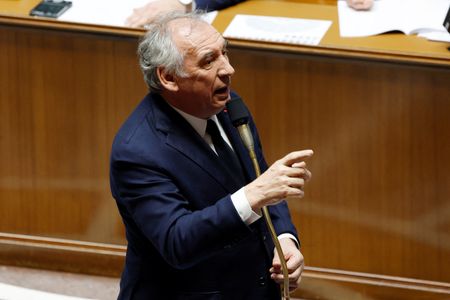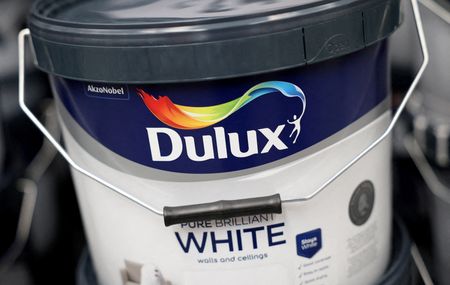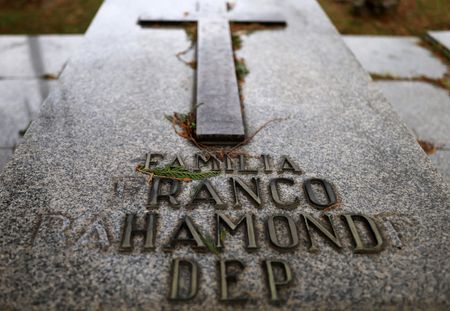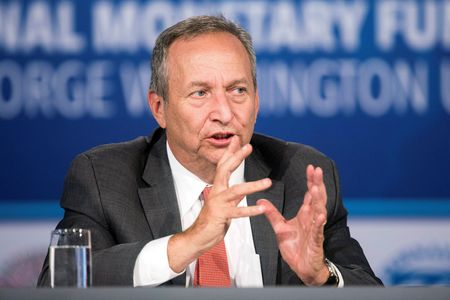By Elizabeth Pineau and Michel Rose
PARIS (Reuters) -French Prime Minister Francois Bayrou rammed the 2025 budget bill through parliament on Monday, betting that he has made enough concessions to his rivals to survive an inevitable no-confidence motion that could cut short his premiership.
In an address to parliament, Bayrou said he would use article 49.3 of the constitution to adopt the text without a vote, the first of several expected usages of the special power to push the bill through a deeply divided parliament.
“We are at the moment of truth,” said Bayrou as he announced the 49.3 provision. “No country can survive without a budget.”
Pressure had been mounting on France to approve the much-delayed budget, with business leaders, European Union partners and voters showing impatience with a political class that has struggled to overcome its confrontational culture.
France has been mired in political instability since President Emmanuel Macron’s surprise decision to call a snap election last June backfired, with voters delivering a hung parliament just as an unexpected hole in public finances emerged.
Political wrangling over the 2025 budget led to the toppling of Bayrou’s predecessor, Michel Barnier, and the current prime minister has been forced into expensive concessions to rivals from the far right and the left to push the legislation forward.
Those concessions, which will do little to assuage investors increasingly concerned by France’s worsening public finances, seem to have bought him some more time.
On Monday, the centre-left Socialist party decided against supporting the upcoming no-confidence vote, scheduled for Wednesday, a parliamentary source told Reuters.
The far-right National Rally, which led the ousting of Barnier’s minority government, has yet to announce whether it will seek to topple Bayrou, but is widely expected to let him continue in the job.
The budget aims to reduce the public deficit to 5.4% of economic output this year from an estimated 6% in 2024, raising the target from 5.0% under the previous government. It foresees overall budget savings of around 50 billion euros ($51.2 billion) made up of 30 billion in spending cuts and 20 billion in tax increases.
Taxes will rise on large firms and the wealthy, while overall state spending should fall by 2%, the first time in 25 years that a government has reduced spending in nominal terms.
The collapse of the Barnier government in early December meant France was unable to pass the budget before the year-end deadline, creating economic uncertainty for households and businesses alike.
($1 = 0.9651 euros)
(Reporting by Michel Rose, Dominique Vidalon and Elizabeth Pineau;Editing by Ros Russell and Alison Williams)











